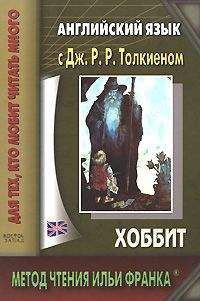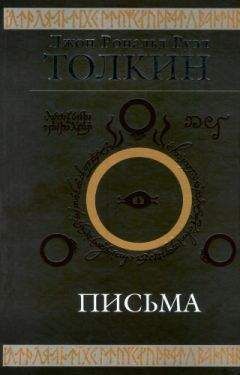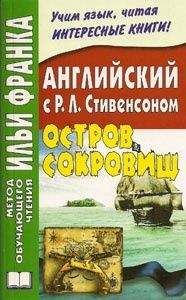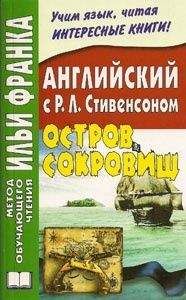murderer [ˈmǝ: d (ǝ) rǝ] scatter [ˈskætǝ] piercing [ˈpɪǝsɪŋ] jibber [ˈdʒɪbǝ] jabber [ˈdʒæbǝ] beyond [bɪˈjɔnd]
“Murderers and elf-friends!” the Great Goblin shouted. “Slash them! Beat them! Bite them! Gnash them! Take them away to dark holes full of snakes, and never let them see the light again!” He was in such a rage that he jumped off his seat and himself rushed at Thorin with his mouth open. Just at that moment all the lights in the cavern went out, and the great fire went off poof! into a tower of blue glowing smoke, right up to the roof, that scattered piercing white sparks all among the goblins. The yells and yammering, croaking, jibbering and jabbering; howls, growls and curses; shrieking and skriking, that followed were beyond description. Several hundred wild cats and wolves being roasted slowly alive together would not have compared with it. The sparks were burning holes in the goblins, and the smoke that now fell from the roof made the air too thick for even their eyes to see through. Soon they were falling over one another and rolling in heaps on the floor, biting and kicking and fighting as if they had all gone mad.
Suddenly a sword flashed (внезапно меч засверкал) in its own light (своим собственным светом). Bilbo saw it go right through the Great Goblin (Бильбо увидел, как он пронзает: «проходит прямо насквозь» Великого Гоблина) as he stood dumbfounded (пока он стоял, ошеломленный) in the middle of his rage (в самом разгаре своей ярости; middle — середина). He fell dead (он упал замертво; to fall), and the goblin soldiers fled (и солдаты гоблины спасались бегством; to flee — убегать, спасаться бегством) before the sword (пред этим мечом) shrieking into the darkness (пронзительно крича, в темноту).
The sword went back into its sheath (меч вернулся в свои ножны).
“Follow me quick (следуйте за мной, быстро)!” said a voice fierce and quiet (сказал некий голос, свирепый/пылкий и спокойный); and before Bilbo understood (и до того, как Бильбо понял) what had happened (что случилось) he was trotting along again (он быстро потрусил снова), as fast as he could trot (как только быстро он мог бежать рысцой), at the end of the line (в самом конце цепочки), down more dark passages (по следующим темных проходам) with the yells of the goblin-hall (и вопли в гоблиновском зале) growing fainter behind him (становились все слабее за ними). A pale light was leading them on (бледный свет вел их вперед).
“Quicker (быстрее), quicker (быстрее)!” said the voice (сказал голос). “The torches will soon be relit (факелы скоро вновь будут зажжены). ”
“Half a minute (минутку; half — половина)!” said Dori, who was at the back next to Bilbo (который находился сзади, рядом с Бильбо), and a decent fellow (и славный парень). He made the hobbit scramble on his shoulders (он помог хоббиту вскарабкаться на свои плечи) as best he could (насколько хорошо он мог /это сделать/) with his tied hands (своими связанными руками), and then off they all went (и затем они все понеслись дальше) at a run (бегом), with a clink — clink of chains (с перезвоном: «дзинь-дзинь» цепей), and many a stumble (и с большим количеством спотыканий), since they had no hands to steady themselves with (так как руки у них были связаны: «так как у них не было рук», что бы поддерживать равновесие). Not for a long while did they stop (они не останавливались очень долгое время), and by that time (и к тому времени) they must have been right down in the very mountain’s heart (они, должно быть, находились в самом сердце горы).
dumbfound [dʌmˈfaʋnd] shriek [ʃri: k] quick [kwɪk]
Suddenly a sword flashed in its own light. Bilbo saw it go right through the Great Goblin as he stood dumbfounded in the middle of his rage. He fell dead, and the goblin soldiers fled before the sword shrieking into the darkness.
The sword went back into its sheath.
“Follow me quick!” said a voice fierce and quiet; and before Bilbo understood what had happened he was trotting along again, as fast as he could trot, at the end of the line, down more dark passages with the yells of the goblin-hall growing fainter behind him. A pale light was leading them on.
“Quicker, quicker!” said the voice. “The torches will soon be relit. ”
“Half a minute!” said Dori, who was at the back next to Bilbo, and a decent fellow. He made the hobbit scramble on his shoulders as best he could with his tied hands, and then off they all went at a run, with a clink-clink of chains, and many a stumble, since they had no hands to steady themselves with. Not for a long while did they stop, and by that time they must have been right down in the very mountain’s heart.
Then Gandalf lit up his wand (затем Гэндальф зажег свой жезл/свою волшебную палочку). Of course it was Gandalf (конечно же, это был Гэндальф); but just then (но как раз тогда) they were too busy (они были слишком заняты) to ask how he got there (чтобы спросить его, как он туда попал). He took out his sword again (он снова достал свой меч), and again it flashed in the dark by itself (и снова он сверкнул в темноте сам по себе). It burned with a rage (он горел от ярости) that made it gleam (которая заставляла его мерцать) if goblins were about (если гоблины были поблизости); now it was bright as blue flame (теперь он сиял ярким синем пламенем) for delight in the killing (от восторга, от того, что он убил) of the great lord of the cave (верховного повелителя пещеры). It made no trouble whatever (не составило никакого труда) of cutting through the goblin-chains (разрезать гоблиновские цепи) and setting all the prisoners free (и освободить всех пленников) as quickly as possible (так скоро, как только возможно). This sword’s name was Glamdring the Foe-hammer (имя этого меча было Глемдринг, Молот-врагов), if you remember (если вы помните). The goblins just called it Beater (гоблины же называли его просто Колотун), and hated it worse than Biter (и ненавидели его еще больше, чем Кусач) if possible (если такое возможно). Orcrist, too, had been saved (Оркрист также был спасен); for Gandalf had brought it along as well (так как Гэндальф также захватил его с собой), snatching it from one of the terrified guards (выхватив его у одного из испуганных стражников). Gandalf thought of most things (Гэндальф думал о большинстве вещей); and though he could not do everything (и хотя он не мог выполнить все), he could do a great deal (он мог сделать очень многое) for friends in a tight corner (для друзей, /оказавшихся/ в опасном положении: «в тесном углу»).
wand [wɔnd] foe [fǝʋ] tight [taɪt]
Then Gandalf lit up his wand. Of course it was Gandalf; but just then they were too busy to ask how he got there. He took out his sword again, and again it flashed in the dark by itself. It burned with a rage that made it gleam if goblins were about; now it was bright as blue flame for delight in the killing of the great lord of the cave. It made no trouble whatever of cutting through the goblin-chains and setting all the prisoners free as quickly as possible. This sword’s name was Glamdring the Foe-hammer, if you remember. The goblins just called it Beater, and hated it worse than Biter if possible. Orcrist, too, had been saved; for Gandalf had brought it along as well, snatching it from one of the terrified guards. Gandalf thought of most things; and though he could not do everything, he could do a great deal for friends in a tight corner.
“Are we all here (все на месте: «мы здесь все»)?” said he (сказал он), handing his sword back to Thorin (вручая его меч обратно Торину) with a bow (с поклоном).
“Let me see (дайте подумать): one — that’s Thorin (один — это Торин); two, three, four, five, six, seven, eight, nine, ten, eleven (два, три, четыре, пять, шесть, семь, восемь, девять, десять, одиннадцать); where are Fili and Kili (где Фили и Кили)? Here they are (вот они), twelve, thirteen (двенадцать, тринадцать) — and here’s Mr. Baggins (а вот и мистер Бэггинс): fourteen (четырнадцать)! Well, well (ну уж)! it might be worse (могло быть и хуже), and then again (но все же: «и кроме того») it might be a good deal better (могло бы быть гораздо лучше). No ponies (без пони), and no food (и без пищи), and no knowing quite where we are (и не знаем точно, где мы), and hordes of angry goblins just behind (и полчища: «орды» рассерженных гоблинов прямо за нашими спинами)! On we go (бежим дальше)!”
On they went (они и двигались дальше). Gandalf was quite right (Гэндальф был совершенно прав): they began to hear goblin noises (они начали слышать шум, /производимый/ гоблинами) and horrible cries (и ужасные крики) far behind in the passages (где-то далеко позади, в тех самых туннелях) they had come through (по которым они прошли). That sent them on faster than ever (это гнало их: «посылало их» вперед быстрее, чем когда бы то ни было), and as poor Bilbo could not possibly go half as fast (и так как бедняжка Бильбо просто не мог двигаться и вполовину так же быстро) — for dwarves can roll along at a tremendous pace (так как гномы могут нестись на огромнейшей скорости; pace — шаг, поступь, темп), I can tell you (могу вам сказать), when they have to (когда они вынуждены делать это) — they took it in turn (они по очереди) to carry him on their backs (несли его на своих спинах). Still goblins go faster than dwarves (и все же гоблины двигаются быстрее, чем гномы), and these goblins knew the way better (и эти гоблины лучше знали дорогу) (they had made the paths themselves (они сделали эти тропинки сами), and were madly angry (и они были безумно рассержены); so that do what they could (и хотя они делали все возможное) the dwarves heard the cries and howls getting closer and closer (гномы слышали, как крики и вопли становились все ближе и ближе). Soon they could hear (вскоре они могли слышать) even the flap of the goblin feet (даже шлепки от ног гоблинов), many many feet (большого, большого количества ног) which seemed only just round the last corner (которые, казалось, /были/ всего лишь за последним углом). The blink of red torches could be seen behind them (мерцание красных факелов было видно позади их) in the tunnel they were following (в тех туннелях, по которым они сами следовали); and they were getting deadly tired (и они уже смертельно устали; to get tired — становиться уставшим, уставать).





